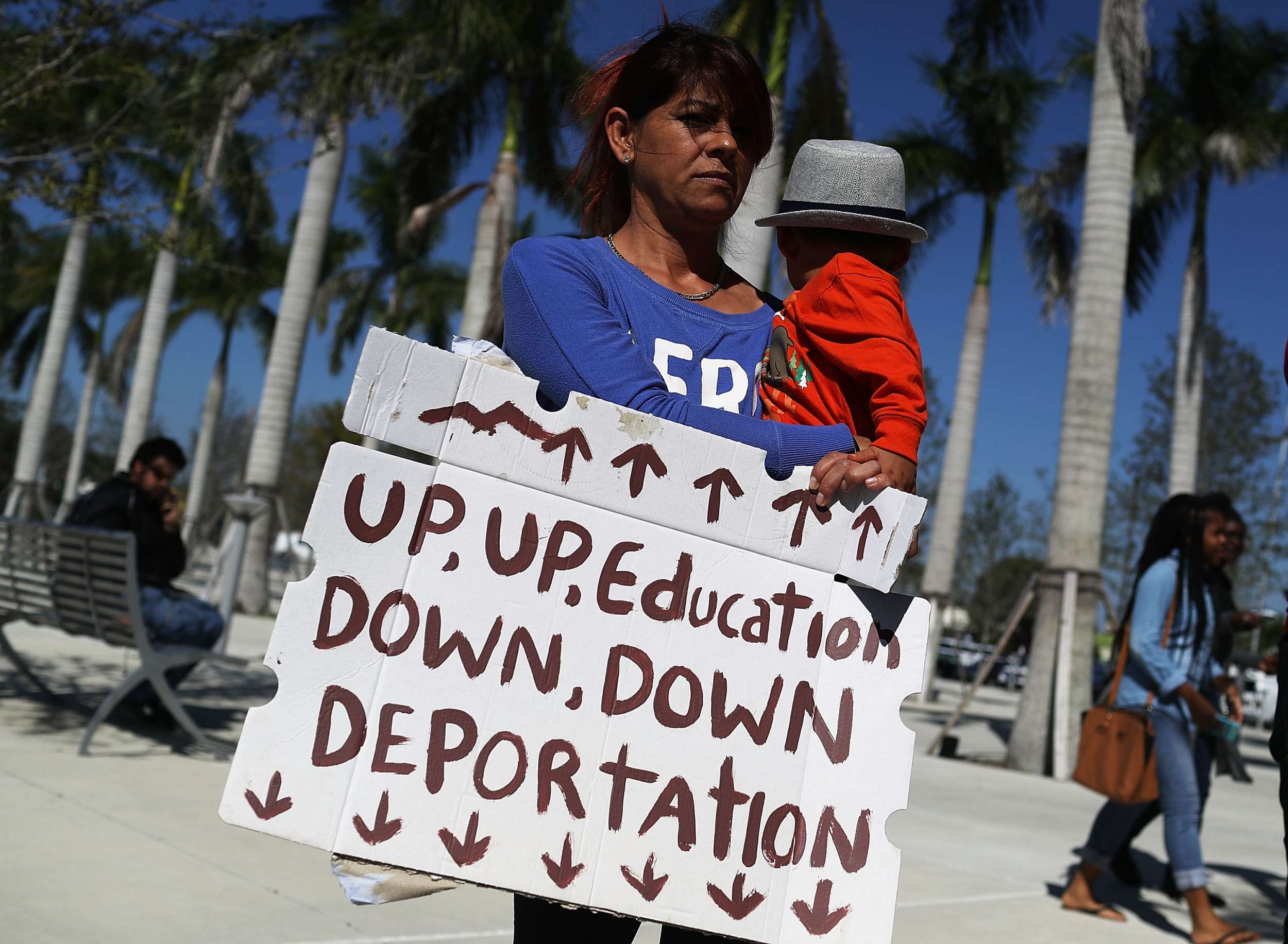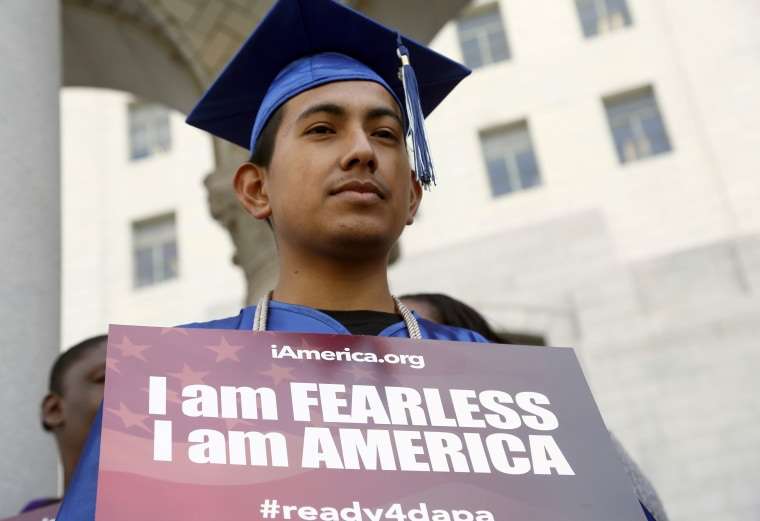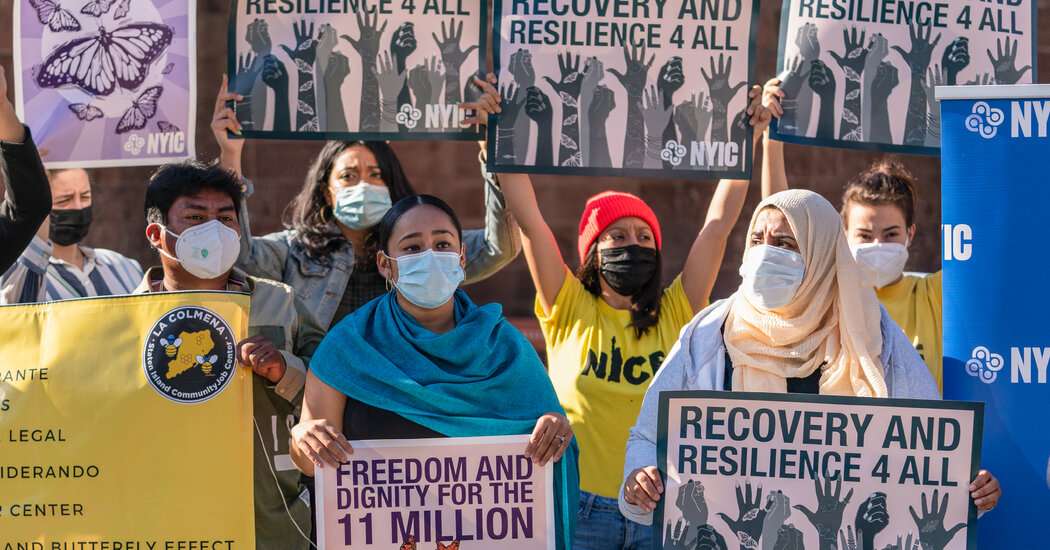Can Daca And Undocumented Students Apply To Fafsa Or Federal Aid
Dreamers and undocumented students can attempt to apply for FAFSA or federal aid, but wont receive it. To qualify for federal aid, an immigrant student must have citizen status, meaning they have a green card, or that the US is granting them asylum. The government gives immigrants with green cards or asylum status a Social Security Number , which allow them to file the FAFSA.
The FAFSA doesnt ask applicants about their parents immigrant status because that has nothing to do with the students educational career. If Dreamers want financial aid, they have to get it from the state or from a scholarship or grant.
How To Address Your Citizenship On Your Application
If you’re an undocumented student, don’t lie or misrepresent your citizenship status on your application. Leave your social security number blank. Don’t put in an Individual Taxpayer Identification Number, Alien number, or any other number.
For the University of California, undocumented students should select “No Selection” for their country of citizenship.
In your application essay, absolutely, feel free to address your immigration status and situation. Colleges want to hear about obstacles that you’ve had to overcome, but don’t let those obstacles define you. The purpose of the application essay is for the school to get to know you and get a better sense of how you could possibly contribute to the college’s community.
Focus on your accomplishments and what makes you unique as an individual.
The Federal Education and Privacy Act protects the privacy of student records at all educational institutions. Whatever you write in your essay or talk about with admissions or financial aid counselors will not be reported.
You Have Rights But They Can Change
To understand why the rights of undocumented students change so much, you need to understand DACA.
The Obama administration in 2012 as an extension of the DREAM Act. The DREAM Act is a legislative proposal from 2001 that is intended to provide a path to citizenship for immigrants who arrived in the U.S. as minors, but the bill has yet to be approved by Congress.
Until the DREAM Act is passed, undocumented immigrants who arrived in the country as children can use DACA to obtain legal status, pursue education and work opportunities, and be free from legal persecution.
The term “Dreamers” used to describe undocumented youth who are at risk of being deported comes from DACA. More than 700,000 young immigrants have qualified for Dreamer status under DACA since its inception. Applicants who have been previously determined eligible must reapply for this status every two years.
In 2017, the Trump administration began phasing out DACA and stopped accepting new applications, though multiple lawsuits challenged this action. Efforts to dismantle DACA were among Trump’s most controversial policies.
A court order in 2018 blocked the Trump administration’s DACA rollbacks. New applications for DACA resumed in 2021 under the Biden administration.
Two versions of the DREAM Act are currently being considered by Congress: the Dream Act of 2021 and the Dream and Promise Act of 2021. Both bills would provide a path to citizenship for Dreamers.
Also Check: Is It Too Late To Apply For College
The Landscape Of Undocumented Students Today
According to the federal government, undocumented students can legally enroll in colleges and universities in the U.S. Although some states prohibit these individuals from attending public schools, the vast majority do not.
As such, nearly half a million college students are undocumented. The Presidents’ Alliance report also found the following figures:
- Forty-six percent of undocumented students in higher education identified as Hispanic, while 25% identified as Asian and 15% identified as Black.
- Eighty-two percent attended public institutions, while 18% enrolled in private colleges and universities
- The five states with the most undocumented students in higher education were California, Texas, Florida, New York, and Illinois
Tuition Costs For Undocumented Students

As with all college applicants, tuition costs for public institutions will depend on whether the undocumented student qualifies for in-state tuition. The states that offer in-state tuition to undocumented students, through tuition equity laws or policies, are California, Colorado, Connecticut, Florida, Hawaii, Illinois, Kansas, Kentucky, Maryland, Minnesota, Nebraska, New Jersey, New Mexico, New York, Oklahoma, Oregon, Rhode Island, Texas, Utah, and Washington.
Recommended Reading: Is Taking Online College Classes Good
How Do Undocumented Students Pay For College
Immigrant students commonly pay for college with scholarships tailored specifically to undocumented, first-generation, low-income, or other high-need students. Undocumented students can pursue scholarships from certain states, private colleges, nonprofits, and other organizations. Unfortunately, undocumented students do not qualify for federal student aid.
Can Undocumented Students Go To Uc
University of California does not discriminate against students based on their immigration status nor do we provide any special treatment. Having issued a statement of principles , the university reaffirms its commitment to maintaining the well-being of all of our undocumented members alike, including enforcing their privacy and civil liberties vigorously.
Read Also: What Ipad Should I Buy For College
Find The Right State For Your Education
When shopping for a college or university, undocumented immigrants must carefully consider state policies, which can affect how much they pay for college, whether they can access state financial aid, and even whether they may attend a public college at all.
Whether undocumented students can pay in-state tuition depends on the school in question, as each state has a different policy. Virginia, for example, will grant in-state tuition rates for undocumented students with DACA status, but not for those without.
Eighteen states currently allow undocumented students to pay in-state tuition rates based on recommendations made by state legislation, while other states allow their Boards of Regents to set those guidelines. In both cases, an undocumented student must hold a high school diploma or GED certificate to qualify for in-state tuition.
Six states, including California, Washington, and Oregon, allow undocumented students to access state financial aid. While they still lack access to federal aid, this provision makes it easier for undocumented students to pay for college.
In the remaining states, undocumented students do not experience any kind of special status regarding enrollment.
Immigration Detention Or Deportation Activities On Campus
The U.S. Immigration and Customs Enforcement has recognized IHEs as sensitive locations where enforcement activities like searches and arrests are not allowed. The only time when ICE can engage in enforcement activities at sensitive locations is under special circumstances or if they have prior approval.
For more information on sensitive locations, visit the ICE website.
Immigration officers can be present on campus even though IHEs are recognized as sensitive locations for reasons other than immigrant deportation or detention.
For example, you may be one of approximately 60,000 international students studying in Massachusetts on F-1, J-1, or similar visas. As part of administering international student visas, immigration officers may visit campuses to meet with students and staff.
The Attorney Generals Office does not believe that ICE intends to change its sensitive locations policy.However, due to increased immigration enforcement in Massachusetts and around the country, IHEs should take proactive steps to prepare for immigration detention or deportation activities on campus.
Read Also: How To Get Easy Scholarships For College
Admissions And Financial Aid: Undocumented Students
Consistent with these inclusive values, students who are undocumented are welcome to apply to AU. Citizenship is not, and has never been, a condition for admissions to AU. All candidates for admission are evaluated on the basis of their academic strength and fit with the University.
Undocumented college students are not eligible to receive federal financial aid. Students are eligible for the same merit-based aid offered to all students. Scholarship funds are available for qualified students and are offered on the basis of academic merit.
Additional scholarship funds are offered to students who qualify for admission to the University Honors Program and the Frederick Douglass Distinguished Scholars Program . Separate applications are required for these programs.
For outside financial resources for undocumented students, please visit the following resources:
Your Access Varies By State
Every college has its own policy on admitting undocumented students, and state laws similarly vary. Public or private, some schools simply won’t admit students without legal status.
State laws can impact your eligibility to attend a public university, receive state-based financial aid, or pay in-state rates, and the policies vary widely by state.
Whether you can access and finance your education as an undocumented student will depend on your state of residence. Some states have laws designed to assist undocumented students seeking admission to public universities, offering access to in-state tuition rates and state financial aid. Other states have laws restricting these opportunities.
Read Also: Can You Make Monthly Payments For College Tuition
The Perks Of Online College
Online college can be a good solution for undocumented students, especially those in states with restrictive laws. By studying online, you can take classes from a safe and private location while earning a reputable online degree from schools in more permissive states. Some schools even offer in-state tuition for all online students, regardless of where they live.
Remember that every school has its own set of policies about whether or not it accepts undocumented students. Some online schools do, while others don’t. You may have to contact schools for more information about their acceptance policies and application requirements.
According to the National Conference of State Legislatures, as of 2021, 17 U.S. states have created legislation specifically allowing undocumented students to pay in-state tuition rates. They are:
- California
- Virginia
- Washington
In addition, the Boards of Regents in the following states allow access to local tuition rates for undocumented students attending public state university system schools:
- Hawaii
College Admission Policies For Undocumented Immigrants

There is no federal law that prohibits the admission of undocumented immigrants to either public or private US colleges. However, institutional policies can vary, and some states have placed restrictions on undocumented students from attending in-state postsecondary institutions.
The Georgia Board of Regents banned undocumented students from attending the top 5 state-funded colleges in Georgia. Also, Alabama and South Carolina prohibit undocumented students from enrolling at any public postsecondary institution.
Despite these prohibitions, the majority of US colleges remain open to undocumented students.
Many colleges are becoming increasingly vocal and open about their support for undocumented immigrant students. This year, Rutgers University-Newark held a college admissions fair for undocumented students.
Furthermore, top colleges like Stanford, Dartmouth, Duke, and the University of Chicago have stated that they welcome the applications of undocumented students and have undocumented students enrolled.
You May Like: What Do Architects Study In College
Know The Difference Between Public And Private Spaces
IHEs generally cant keep immigration officers from coming into public parts of campus. But, IHEs can restrict them from accessing private spaces without a judicial warrant.
On public campuses, private spaces could include lecture halls while classes are in session, faculty and staff offices, dormitories, research laboratories, kitchens, locker rooms, and maintenance areas.
International Students Spend Billions In America
According to a recent report, international students and their dependents contributed 30.5 billion dollars to the American economy during the 2014-2015 school year. Now, this number includes all international students, including those here on student visas, but this number would still be much larger if undocumented immigrants were allowed to attend public universities under in-state tuition. 20 states currently provide in-state tuition to undocumented immigrants, and if that number were to increase to 50 this nation would see a massive surge in its yearly income.
Recommended Reading: Where To Buy Cheap College Books
Rbc Newcomer Skilled Loan
The Newcomer Skilled Loan program offered by RBC provides funding to help newcomers to Canada achieve certifications or licensing in their field. The loan can be used towards your tuition, books and living expenses.
To learn more about the program, contact RBC directly. Visit RBCs Newcomers to Canada page to find information about other financial services to support immigrants.
Credential Assessment For Regulated Professions
A regulated profession is one that sets its own standards of practice for workers to legally work in their profession in Ontario. It’s common for regulated professions to accept one type of credential assessment report and not the other, or provide their own credential assessment services, depending on their specific standards. If you’re applying to a program that will lead to a career in a regulated profession, be sure to research the credential assessment requirements before you order your credential assessment report, to avoid having to redo it.
You can learn more about regulated and unregulated professions on the Ministry of Colleges and Universities website.
Recommended Reading: How To Lose Weight In College
The Green Light Law Act The Solution
Enacted in December 2019, the Green Light Law Act, also known as The Drivers License Access and Privacy Act, allows all New Yorkers 16 years of age or older, including undocumented immigrants, to apply for a standard, non-commercial driver license or learner permit regardless of their citizenship or lawful status in the United States.
Under this Act, DMV officials are not allowed to ask about ones citizenship or legal status here in the United States. You also do not need a Social Security card to apply for a license or permit under this law.
However, you must sign an Affidavit of never having been issued a Social Security Number when you apply for a standard driver license. Also, a standard drivers license cannot be for federal purposes, like boarding an airplane, or to enter the United States.
If you need assistance applying for DACA, TPS or naturalization please contact CUNY Citizenship Now!at 646-664-9400 or email us your questions at
Know Your Rights When Confronted by ICE
We are living during unprecedented times. CUNY understands this. At CUNY, we want our students to know that we are always here for them. Below are several documents containing information on how to protect yourself or a loved one in the case of an ICE interaction.
How Ihes Should Involve Campus Police
IHEs should ensure that their campus police policies and practices are consistent with the Supreme Judicial Court decision in Lunn v. Commonwealth, which held that law enforcement officers may not hold an individual solely on the basis of a Federal civil immigration detainer.
Immigrant students could be more willing to come forward with information about crime or other concerns on campus when they do not view campus police as a threat.
You May Like: Where Do Marines Go To College
You Can Go To College
The first thing you should know is that no federal law prevents U.S. colleges from admitting undocumented students. And only a few states including Georgia, South Carolina and Alabama have placed any kind of restrictions on undocumented students attending public colleges and universities.* In most cases, colleges set their own rules on admitting undocumented students, so you should research the policies of colleges you are interested in attending.
You should also know that undocumented students cannot receive federal financial aid for college the type of aid that many college students rely on. However, undocumented students can get financial aid or scholarships for college in other ways. To find out more, read For Undocumented Students: Questions and Answers About Paying for College.
Your undocumented status might limit your choices but college is still an option if you have a plan. Your best strategy is to start planning early, do a lot of research and ask a lot of questions.
I Am Undocumented Can I Apply To The Uw

Yes, prospective students can apply to all three UW campuses regardless of their immigration status. There is no federal or state law that prohibits undocumented students admissions to public or private universities in Washington state. All prospective students will be reviewed under the same admissions criteria regardless of status.
Don’t Miss: How To Choose The Best Online College
Pandemic Aid Is Available For Undocumented Students
Undocumented students can now access some of the $36 billion in emergency stimulus aid earmarked for colleges during the COVID-19 pandemic. The Trump administration previously prevented these students from accessing emergency aid to cover food, housing, and school supplies. Contact your school’s financial aid office for more information.
What Is Daca And The Dream Act
DACA stands for Deferred Action for Childhood Arrivals. Although people call DACA recipients Dreamers, DACA is different than the DREAM Act . The term Dreamer does come from the DREAM Act, the intent of which was to allow only the best and brightest young people to earn their legal status after a rigorous and lengthy process. Members of Congress have been trying to pass different versions of the DREAM Act since 2001, and the most recent version was released in 2017. At its core, the intent of the DREAM Act was to give qualifying illegal immigrants under the age of 18 a path to citizenship.
President Barack Obama created the DACA program in 2012 because Congress failed to pass multiple versions of the DREAM Act. In his statement on the matter, Obama said that DACA is a temporary stopgap measure that lets us focus our resources wisely while giving a degree of relief and hope to talented, driven, patriotic young people.
You qualify for DACA if you:
- Were younger than 31 on June 15, 2012 and you were an illegal immigrant on that date
- Immigrated to America before turning 16
- Have lived in America since June 15, 2007
- Are attending school, have graduated from high school or attained a GED, or have been honorably discharged from the Army or Coast Guard
- Have not been convicted of a felony, serious misdemeanor, or three misdemeanors
DACA recipients are covered for two years, after which they must reapply.
Recommended Reading: What Do I Want To Study In College